The Great Debate: Low Fat vs Low Carb
If you watched the news or read any paper last week you heard/read this headline:
“Low Fat vs Low Carb: Which Diet Is Better?”
My immediate reaction: “Nooooooooooo!!!!”
While I respect journalists for the work that they do, it is difficult, as a graduate student in clinical nutrition, to watch certain studies get turned into headlines with hard and fast rules. They’re often interpreted with no wiggle room, scientific explanation, or commentary of how the findings translate into real life (because that’s what it’s about!!!).
You know what I mean???
Well, two studies were published last week. One [published in the Annals of Internal Medicine] concluded that those dieters on a low carbohydrate diet lost more weight and reduced their risk of cardiovascular disease more than those participants on a low fat diet.
The other study [published in the Journal of the American Medical Association] found a minimal difference in weight loss between participants following a low carbohydrate diet versus a low fat diet. This was a systematic review of 48 randomized trials (typically considered the Queen Bey of research). Due to the lack of significant differences, the study authors recommended choosing whichever diet you are most likely to see through (if looking to lose weight).
So what do these studies mean for YOU and your health? Here are the 3 most important things you should know to put the fat versus carb debate to rest:
1. It’s NOT a competition
We need BOTH carbohydrates and fats to survive. Our bodies demand the healthiest versions of these two nutrients over the garbage that often lines our supermarket shelves.
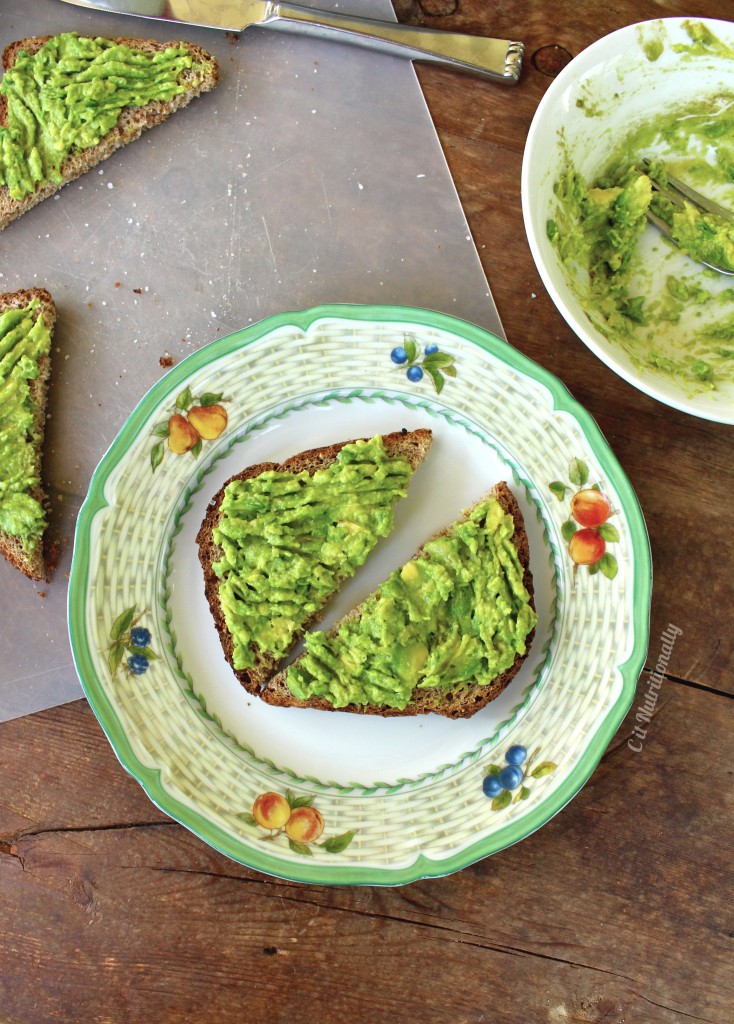
- Real life application: Our cells require fat to thrive...it’s in their membranes! Therefore, our diets must contain fat. Choose heart-healthy fats like nuts, avocado, seeds, and olive oil, that lower our bad cholesterol and raise our good cholesterol levels. Avoid saturated and trans fats (largely in processed foods), which clog our blood vessels and add rings around our bellies!
- These are some favorite heart-healthy recipes:
2. Lift nutrient bans
Carbohydrates and fat are nutrients. Our bodies NEED nutrients! Eliminating a single nutrient can be detrimental to our health. Carbohydrates provide instant energy and certain vitamins and minerals that we cannot receive from fat. Fat provides prolonged energy as it is digested slower than carbohydrates.
- Real life application: Fruits, vegetables, beans, legumes, and whole grains are complex carbohydrates with superior nutrition to refined, white, simple carbs (read: more FIBER, vitamins and minerals, less added sugar). The latest guidelines from the Academy of Nutrition and Dietetics recommend at least 50-65% of your total daily intake to be from these fiber-rich carbohydrates.
3. Eat for health
Believe it or not, the delicious food we eat is the sustenance we require to function properly. Choosing to FUEL ourselves properly is a non-negotiable key to health. Eat poorly, feel poorly.
- Real life application: That salad you ate…with the dark leafy greens, tomatoes, carrots, and bell peppers, finished with an oil-based dressing…it provides vitamin A and beta-carotene you need for your eyes to operate properly, some vitamin C you need so your skin stays young, and vitamin K you need so the cut you got while shaving stops bleeding.
As you can tell, nutrition is about the complete picture. It’s the sum of it’s nutrients in whole foods that we eat — fats and carbohydrates (and, of course, protein too!).
Here are some of my most beloved recipes that equally favor good-for-you fats AND carbs (with some protein thrown in there):
Mung Bean and Lentil Salad-Stuffed Avocado
One last piece of advice: Do you!
Eat what makes your body feel it’s best (and I promise you it’s not all of those ding dongs and fried chicken!).
XO


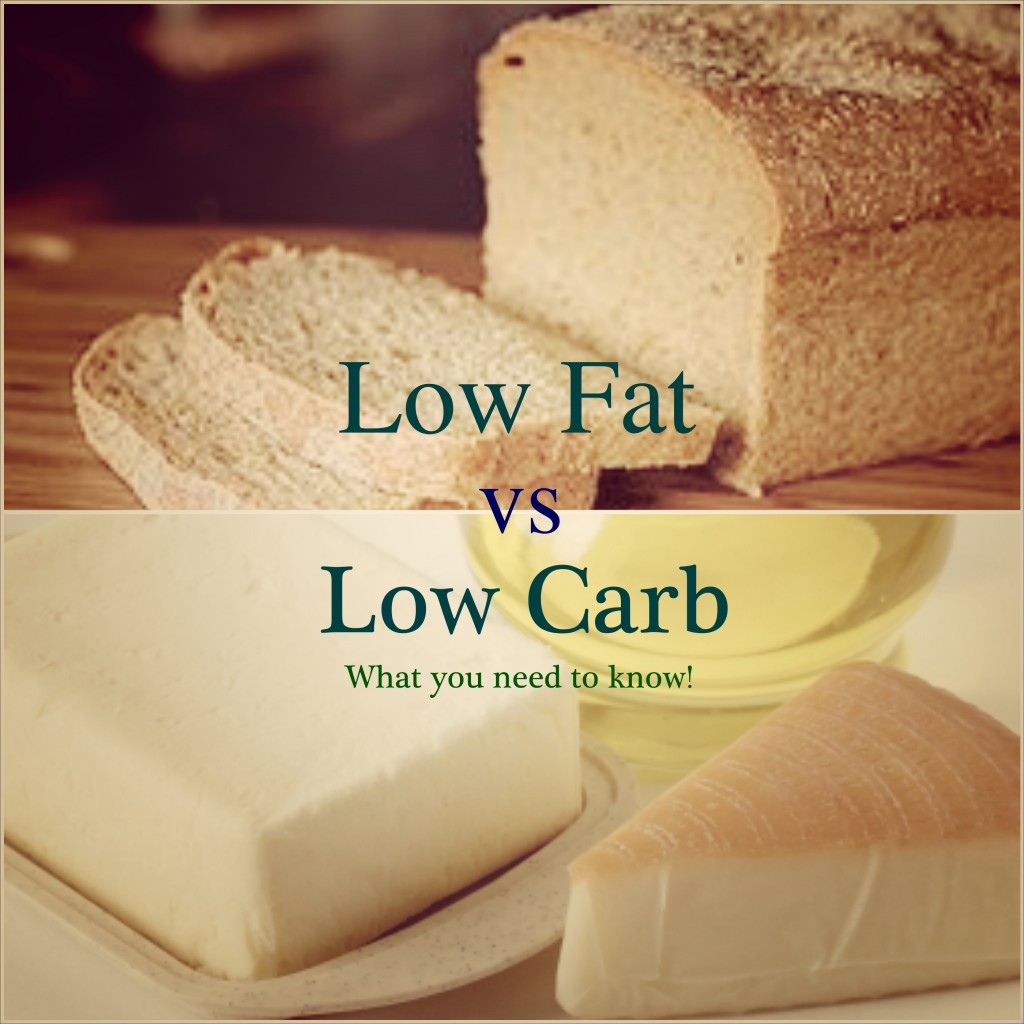
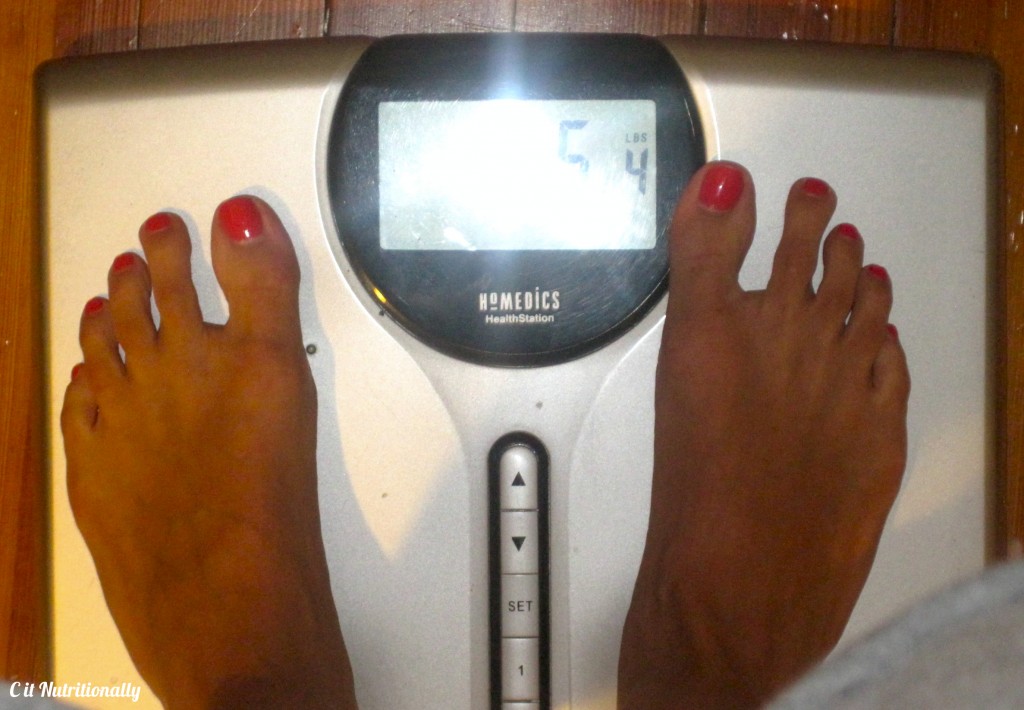
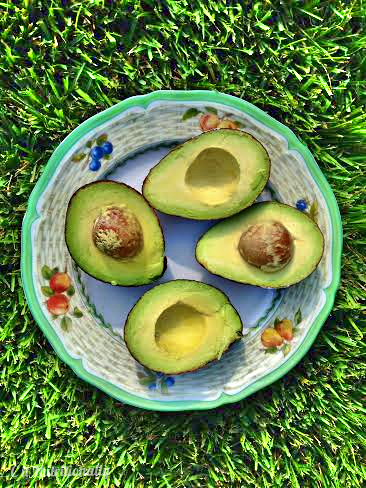
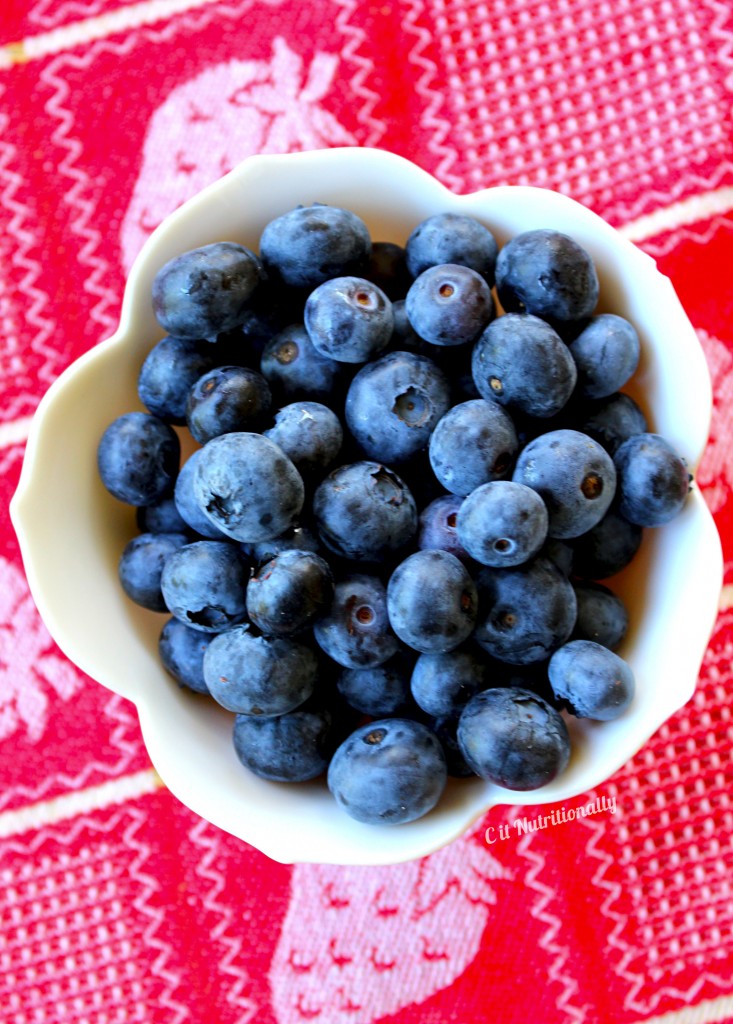

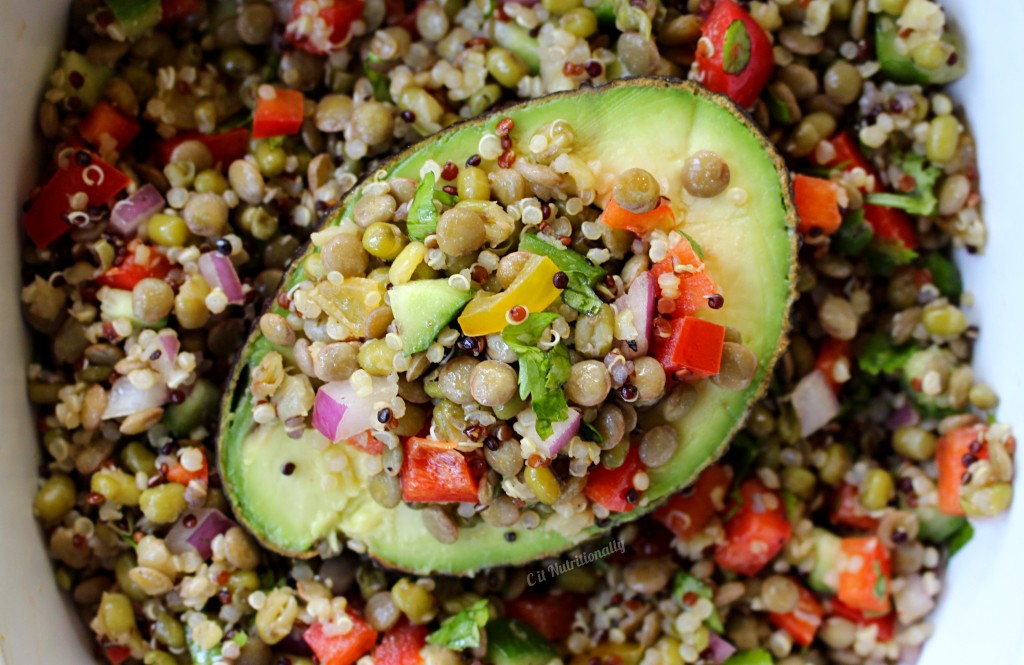
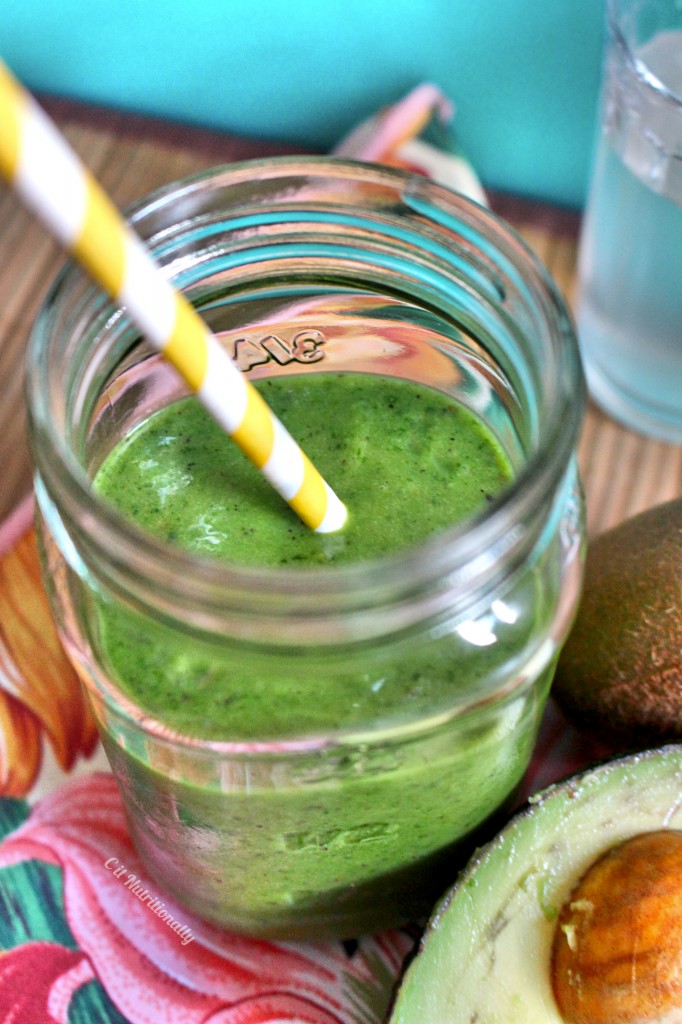
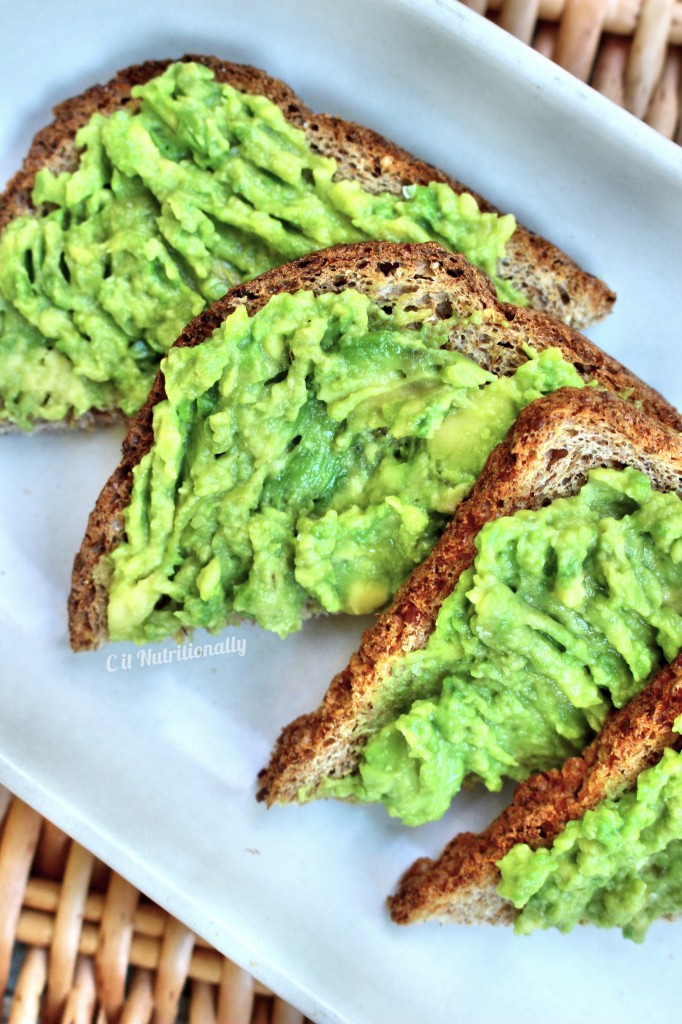
 Hi there!
Thanks for stopping by! I'm Chelsey, an online Registered Dietitian, recipe developer, budding photographer, and coffee addict! My mission is to help you feel good through food by answering the question "What should I eat?" Let's make nutrition approachable!
I hope you enjoy my personal collection of simple, healthy, food allergy friendly and nutritiously delicious recipes, plus tips and tons of tricks that will help YOU live a nutritionally-balanced life! I look forward to getting to know you better...
Hi there!
Thanks for stopping by! I'm Chelsey, an online Registered Dietitian, recipe developer, budding photographer, and coffee addict! My mission is to help you feel good through food by answering the question "What should I eat?" Let's make nutrition approachable!
I hope you enjoy my personal collection of simple, healthy, food allergy friendly and nutritiously delicious recipes, plus tips and tons of tricks that will help YOU live a nutritionally-balanced life! I look forward to getting to know you better...







